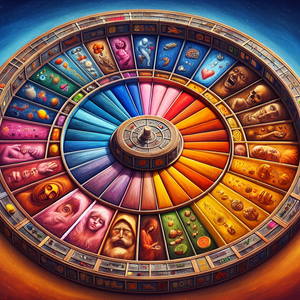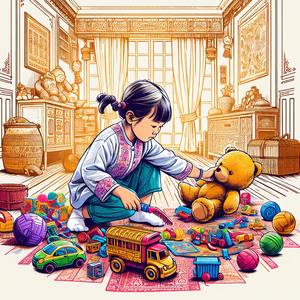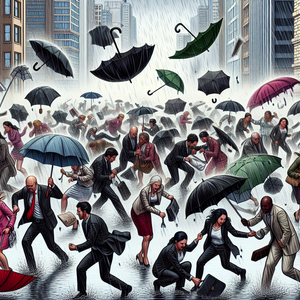The Rise of Indie Games and Their Cultural Impact

Several factors have contributed to the remarkable ascent of indie games in recent years. Advances in technology have significantly reduced the barriers to game development. The emergence of powerful yet accessible development tools, such as Unity and Unreal Engine, has democratized the process, enabling small teams or even solo developers to create games without the need for substantial financial backing. This accessibility has allowed a new wave of creative voices to emerge in the gaming industry. Digital distribution platforms like Steam, itch.io, and the Epic Games Store have provided indie developers with a global marketplace to showcase their creations. The success of critically acclaimed titles such as 'Undertale,' 'Celeste,' and 'Hollow Knight' demonstrates that indie games can not only compete with mainstream titles but can also achieve significant commercial success. These games have garnered dedicated followings and critical praise, challenging the notion that only high-budget productions can capture players' attention and imagination.
Cultural Reflection and Representation
One of the most compelling aspects of indie games is their capacity to reflect diverse cultures and address societal issues. Unlike major studios that often prioritize broad market appeal, indie developers frequently explore personal and niche narratives that resonate on a deeper level. For example, 'Night in the Woods' delves into themes of mental health, economic struggle, and the complexities of growing up in a declining town. Through its rich storytelling and relatable characters, the game provides a poignant commentary on the challenges faced by many young adults today and highlights the importance of community and connection. Similarly, 'Celeste,' a platformer that combines challenging gameplay with a heartfelt narrative, addresses issues such as anxiety and self-discovery. The protagonist, Madeline, embarks on a journey to climb a mountain while grappling with her inner demons, symbolizing the struggles many individuals face in their own lives. The game’s themes of resilience and personal growth resonate with players, allowing them to connect with the characters and narrative in ways that are often absent from more commercially-driven titles.
Innovative Gameplay Mechanics
Indie games are also at the forefront of innovation, frequently experimenting with gameplay mechanics that challenge traditional norms. Titles such as 'Braid' and 'The Witness' have introduced unique time-manipulation mechanics that alter how players interact with the game world. 'Journey,' on the other hand, redefined multiplayer experiences by emphasizing emotional connections over competitive gameplay, showcasing the potential for games to foster meaningful interactions. The creative freedom afforded by indie development empowers creators to take risks that larger studios may be hesitant to explore. This has led to the emergence of new genres and gameplay styles that defy categorization. For instance, 'Dead Cells' combines roguelike elements with Metroidvania exploration, creating an engaging and fresh gaming experience. Such innovations not only enrich the gaming medium but also challenge players to think outside the box.
Impact on the Gaming Community
The rise of indie games has fostered a sense of community among players and developers. Indie game festivals, such as IndieCade and the PAX Indie Showcase, celebrate creativity and innovation while providing a platform for emerging talent to showcase their work. These events encourage collaboration, mentorship, and networking opportunities, further enriching the gaming ecosystem. Furthermore, the accessibility of indie games has broadened the audience for video games. By catering to various interests, backgrounds, and experiences, these titles invite players who may not typically engage with mainstream games to participate in the gaming community. This inclusivity promotes a more diverse gaming culture, where different voices and stories can be amplified.
The rise of indie games marks a significant shift in the gaming landscape, offering players unique experiences that challenge conventional narratives and reflect diverse cultural perspectives. As indie games continue to gain popularity, they not only enrich the gaming experience but also serve as platforms for social commentary and personal expression. The impact of indie games on the gaming community is profound, inspiring future developers to push boundaries and explore new horizons. Looking ahead, it is clear that indie games will continue to play a crucial role in shaping the future of gaming and the stories we tell through this dynamic medium. By embracing innovation, representation, and community, indie games have secured their place as a vital part of the broader cultural narrative.
Indie Game Designer
Indie game studios, small development teams, and freelance opportunities
Core Responsibilities
Conceptualize and design engaging gameplay mechanics and levels that align with the game’s theme and narrative.
Collaborate with artists and programmers to create cohesive game experiences, ensuring that the design vision is executed effectively.
Iterate on game features based on player feedback and playtesting results to enhance user experience.
Required Skills
Proficiency in game design software such as Unity or Unreal Engine.
Strong understanding of gameplay mechanics, storytelling, and player engagement.
Creative problem-solving skills and the ability to think outside traditional game design conventions.
Narrative Designer for Indie Games
Indie studios, narrative-focused game companies, and freelance projects
Core Responsibilities
Create compelling narratives, dialogue, and character arcs that resonate with players and reflect diverse perspectives.
Collaborate with the design and art teams to ensure narrative elements are seamlessly integrated into gameplay.
Develop character backstories and world-building elements that enhance the overall game experience.
Required Skills
Exceptional writing and storytelling abilities, with a focus on interactive narrative techniques.
Familiarity with game design principles and experience in writing for video games.
Understanding of player psychology and how narrative impacts gameplay.
Indie Game Programmer
Small indie studios, start-ups, and freelancing opportunities in game development
Core Responsibilities
Write clean, efficient code to implement game features and mechanics according to design specifications.
Optimize game performance and troubleshoot technical issues during development and after launch.
Collaborate with designers and artists to ensure technical feasibility of game concepts and features.
Required Skills
Proficiency in programming languages commonly used in game development, such as C# or C++.
Familiarity with game engines like Unity or Godot.
Experience with version control systems (e.g., Git) and agile development practices.
Game Marketing Specialist for Indie Titles
Indie game studios, marketing agencies, and freelance marketing roles
Core Responsibilities
Develop and execute marketing strategies to promote indie games across various platforms, including social media and gaming festivals.
Create engaging content, such as trailers, blog posts, and press releases, to attract potential players and media attention.
Analyze market trends and player feedback to refine marketing approaches and improve engagement.
Required Skills
Strong understanding of digital marketing strategies and tools, particularly within the gaming industry.
Excellent communication skills, both written and verbal, with an ability to connect with diverse gaming audiences.
Experience with community management and building relationships within the gaming community.
Game Artist (2D/3D) for Indie Development
Indie game studios, freelance opportunities, and art collectives focused on game development
Core Responsibilities
Create original visual assets, including characters, environments, and UI elements, that align with the game’s artistic vision.
Collaborate with designers to ensure art and gameplay are effectively integrated for a cohesive player experience.
Participate in the iterative design process, providing feedback and adjustments based on playtesting and team discussions.
Required Skills
Proficiency in graphic design software like Photoshop, Illustrator, or 3D modeling software such as Blender or Maya.
Strong portfolio showcasing relevant artwork and game design projects.
Ability to adapt to different art styles and collaborate in a fast-paced, creative environment.


